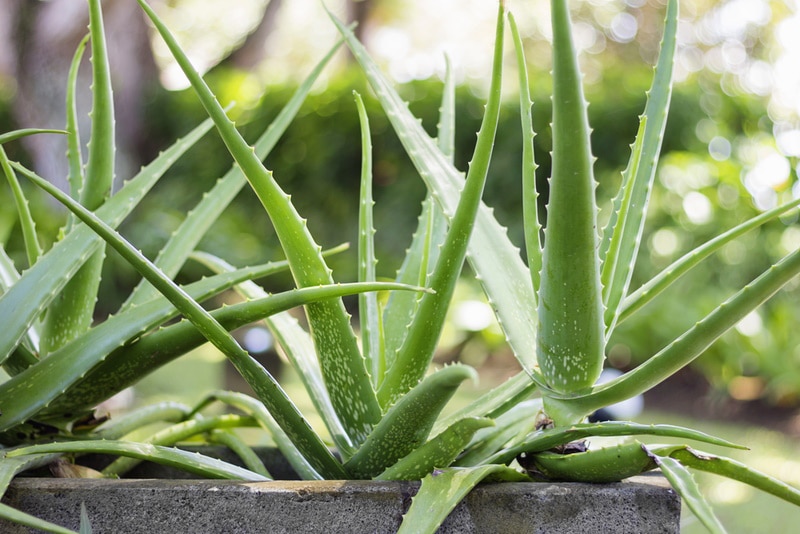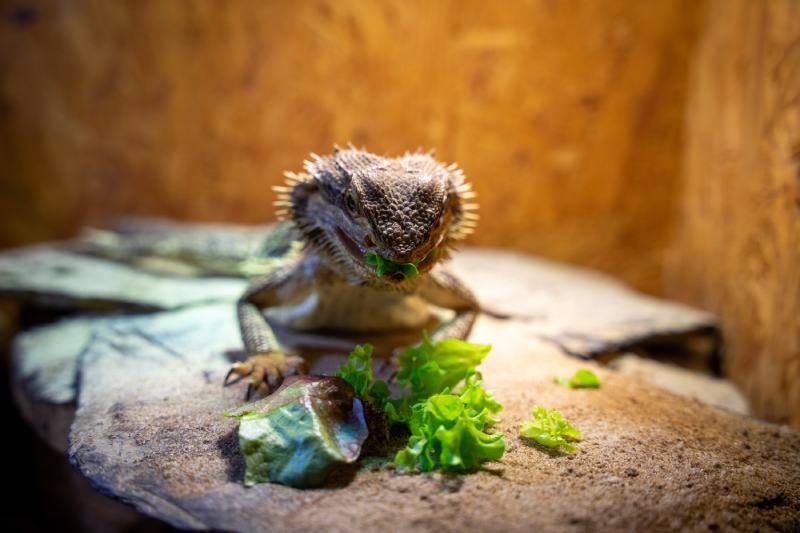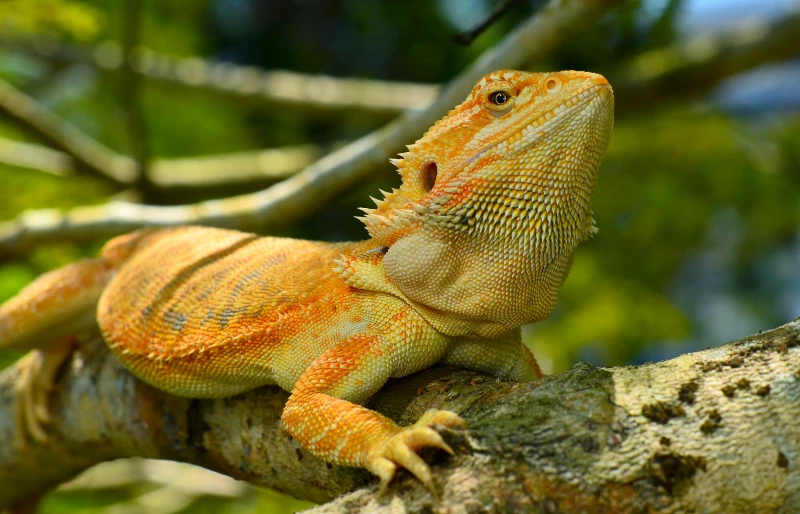Can Bearded Dragons Eat Aloe? Vet-Reviewed Nutrition Facts
Updated on

Reptiles are becoming increasingly popular every year, especially the bearded dragon. Beardies are well known for their interesting appearance and generally calm, docile personalities, which is why many decide to enter the reptile world by owning one.
Caring for bearded dragons is not as labor intensive as some reptiles, but these animals do have unique dietary needs that raise many questions for first-time beardie owners, including: Can bearded dragons eat aloe?
Bearded dragons can safely eat aloe vera, but this plant can have positive and negative effects on their bodies, which is something that you should be aware of before feeding aloe to your beardie.
In this article, we talk more about bearded dragons and their dietary requirements, including whether they should eat aloe vera and the effect that it might have on them.
What Is Aloe Vera?
Aloe vera is a succulent that usually grows in hot and dry climates. It’s native to the regions of Africa, Madagascar, and the Arabian Peninsula. Currently and throughout history, people have been using aloe for medical purposes, healing wounds and promoting faster healing. Numerous studies have confirmed the benefits of aloe for humans, both when applied topically and ingested however, there are also recent concerns over its safety.
But how does eating aloe affect bearded dragons? Should they eat this plant?

Should Bearded Dragons Eat Aloe Vera? Is It Safe?
Aloe vera does not seem to be toxic to bearded dragons, meaning these reptiles can consume it on occasion. That doesn’t mean this is the best plant choice for their dietary needs or that it is risk free. The truth of the matter is that there is little, to no, research and most advice is anecdotal.
Aloe vera does have many vitamins, minerals and phytonutrients that can offer nutritional benefits. However this plant is also low in calcium, protein, and other fundamental nutrients that beardies need for proper development. Aloe vera also contains calcium oxalate crystals, which could lead to problems with calcium absorption when and if consumed in larger quantities.
Although eating aloe vera won’t necessarily cause harm to your beardie, eating this plant may result in an upset stomach and diarrhea, and there’s a slight possibility of choking. Therefore, it might be better to look for more appropriate foods.
How Should You Feed Aloe Vera to Your Bearded Dragon?
Bearded dragons mainly draw nutrients from a combination of leafy greens and fruits, along with insects and worms. However, eating aloe vera every now and then shouldn’t harm your pet, so if your beardie likes the taste, you can offer it occasionally as a treat.
There are several things that you should know to make the process go as smoothly as possible:
- Only provide fresh aloe to your bearded dragon.
- Thoroughly clean the aloe to prevent your beardie from ingesting pesticides or other harmful chemicals.
- Cut the aloe into small, chewable pieces that your bearded dragon can easily consume (this should prevent choking).
- Feed only every now and again, not daily.

Bearded Dragon Dietary Requirements
Bearded dragons are omnivores, meaning they consume animal and plant foods. In their natural habitat, food is often sparse, which is why beardies tend to consume various veggies, fruits, flowers, and insects. Young bearded dragons have high protein needs and are more reliant on insects, as they age they become more herbivorous.
The main plant nutrient sources for bearded dragons should come from vegetables, including various leafy greens:
- Collard greens
- Turnip greens
- Parsley
- Dandelion leaves
- Clover
- Arugula
Besides veggies, beardies can consume occasional fruits including:
- Apricots
- Strawberries
- Kiwi
- Guava
- Apple (seeds removed)
When it comes to animal protein foods, bearded dragons benefit from eating numerous insects, including:
- Crickets
- Mealworms
- Dubia roaches
- Silkworms
- Hornworms
These reptiles also need constant access to fresh drinking water that you should change daily to maintain good hygiene. Variety is key to ensure that your bearded dragon gets a range of nutrients and to maintain good bone health.

 Final Thoughts
Final Thoughts
Bearded dragons can eat aloe, but eating this plant doesn’t provide them with an ideal nutrient source. If your bearded dragon likes to eat aloe, you can offer it on occasion, but make sure to follow the tips for safe feeding to prevent possible choking hazards and health problems.
See also:
- Can Bearded Dragons Eat Grass? Vet-Approved Facts, Diet, & Risks
- Can Bearded Dragons Eat Edamame? Vet-Reviewed Facts & Tips
- Can Bearded Dragons Eat Cactus? Vet-Approved Facts & FAQ
Featured Image Credit: casellesingold, Pixabay












